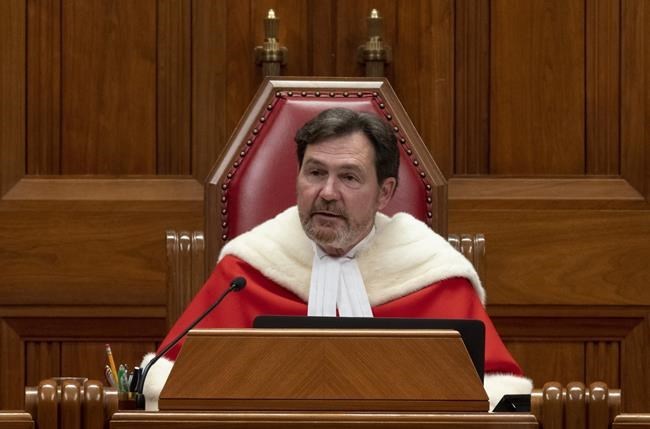OTTAWA — Canada's chief justice says the legal system must continue to modernize and innovate, warning it cannot return to pre-pandemic ways of doing business.
The Supreme Court of Canada's Richard Wagner told a news conference Thursday that all players in the justice system are reassessing what they do, how they do it, and how effectively they meet the needs of the people they serve.
Wagner insists access to justice is not just a fundamental right or a service, but above all a basic human need and an essential ingredient of democracy.
He acknowledged meeting the expectation of timely justice is a big task, especially with so many courts facing backlogs and delays.
Wagner said this is why a committee on court operations in response to COVID-19 continues to meet even as the pandemic eases.
The committee recently drafted a document for judges and court administrators with practical suggestions to deal with matters faster and more effectively.
The Supreme Court began holding hearings via video conference, as well as hybrid sessions, in 2020 to help prevent the spread of COVID-19.
Other courts across the country also moved to quickly adapt, allowing use of audio and video technology for hearings as well as more digital documents.
Wagner said last year the Supreme Court would continue to hold virtual hearings beyond the COVID-19 pandemic if participants agree to them.
"Now, we actively encourage remote hearings," he said Thursday.
The technology levels the playing field for all, giving parties the option to make their case from wherever they choose and offering substantial savings — especially to those farthest from Ottawa, he said.
This improves access to justice, especially for interveners such as public interest groups that present the court with additional context and perspectives on challenging legal issues, Wagner added.
"Truly, it does not matter if counsel is standing before them or appearing on screen. Strong, well-reasoned and persuasive arguments can be made from anywhere."
The courts have a primary role to play in implementing the values of the rule of law and democratic institutions, Wagner said.
However, even in Canada, nothing is certain and "we must constantly remain vigilant" against attacks on those values, he added.
Asked about the "freedom convoy" of anti-government protests that paralyzed downtown Ottawa for weeks last winter, Wagner said it led to deplorable conditions as businesses closed and people lost their jobs.
He cited faulty information circulating largely on social media as part of the explanation for the protests, ostensibly against COVID-19 public health measures enacted by governments but which also revealed mistrust of politicians and other officials.
Wagner said the events, which led to federal invocation of the Emergencies Act to remove large trucks blocking streets, prompted serious security questions.
The Supreme Court building sits just outside the formal parliamentary precinct and therefore does not have the same sort of protective measures as Parliament Hill.
Wagner said he has asked that the court be included as "part of the protection zone" as a result of the protests.
He stressed education and transparency about the role of the court as keys to ensuring people support democracy, judicial independence and the rule of law.
"And if they don't have trust, that's where the problems occur."
This report by The Canadian Press was first published June 16, 2022.
Jim Bronskill, The Canadian Press


